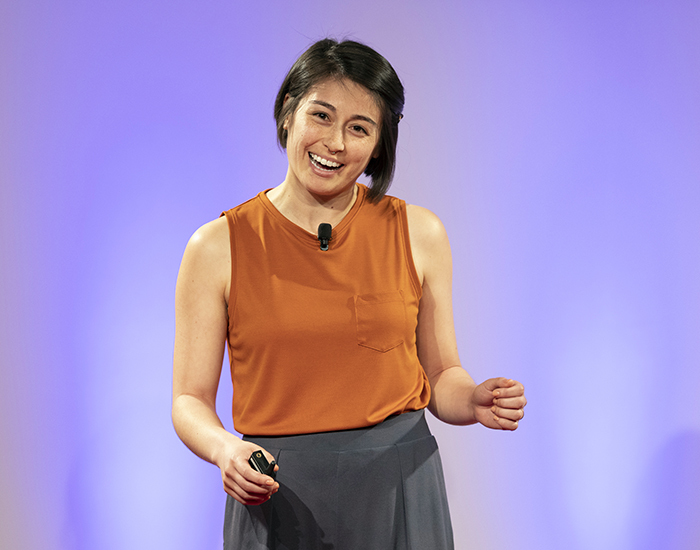Medical professionals are trained to care for others, but caring for themselves is vital not just to their own wellbeing but also that of their patients. That is why Laura Cantu, a 2016 Keck Graduate Institute (KGI) alumna and 2022 MD Candidate at Quinnipiac University's Frank H. Netter MD School of Medicine, is advocating for better mental health support for medical professionals.
In her 2019 TEDx Talk How is Your Doctor Doing?, Cantu spoke on the importance of normalizing mental health support for physicians. She explained how stress and burnout among doctors trickles down to patients, resulting in increased errors.
To address these issues, Cantu recommends speaking openly about mental health, building peer support networks, and organizing interventions for critical incidents, which are patient cases that cause extraordinary distress and exceed natural coping abilities.
For Cantu, such an incident came years ago when she was working as an EMT. A child had tipped over a pot of soup and had gotten burns on a large portion of his body.
"Burns can be difficult to look at even for experienced providers, and especially on a child that just adds another layer of an emotional response," Cantu said.
One to three weeks after a critical incident, medical teams typically hold debriefings, which are a formal process where they discuss how they handled the situation. It is also a way to check in with everyone involved to see if they need emotional support and if they are still capable of taking care of patients or if they need a break.
Now Cantu is working with Dr. Listy Thomas, Associate Professor of Medical Sciences at Quinnipiac, to research different models of debriefing, focusing specifically on defusing.
"It's kind of like a micro debriefing," Cantu said. "It's less structured, a little more informal, and it's conversation-based. You use it in the moment."
Cantu recently made a YouTube video, Quick Tip for Healthcare Providers - Defusing on Shift, which demonstrates how defusing can be used to mitigate the stress from difficult patient cases. This method also helps providers to get out of tunnel vision and view the situation with more clarity. She felt that it was particularly important to make this video during the COVID-19 pandemic.
"Healthcare providers are being faced with this overwhelming flood of patients with limited resources, making these decisions that they didn't realize they were going to have to make during their lifetime and their career."
"We decided that it would be a good idea to put the process out there as a video for people—something short and digestible because people are crunched on time," Cantu said.
Cantu, who is considering pursuing either emergency medicine or pediatrics, said that KGI's Postbaccalaureate Premedical Certificate (PPC) Program played a pivotal role in her career path, particularly PPC Assistant Director Elba Muñoz. She describes how Muñoz helped her through the medical school applications process as she made the difficult decision of whether to move forward with applying as a new mother.
"Elba really supported me and understood me and my unique considerations coming from an ethnic family and how there's a different dynamic there," Cantu said. "I haven't been her student in many years, and I still text her on a weekly basis."
Now Cantu, in her advocacy for mental health support for medical professionals, is helping to foster the kind of environment where others can receive that same support and encouragement—and feel comfortable reaching out for help in the first place. This, she feels, will lead to happier doctors and healthier patients.
